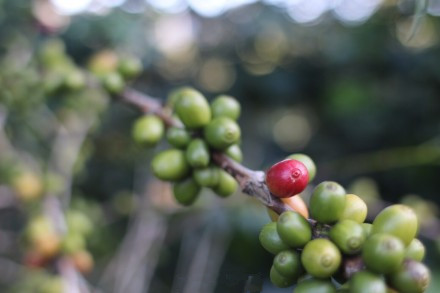WALLENFORD- Jamaica Blue Mountain Coffee Development era

In 1728, coffee was first introduced into Jamaica for cultivation. Due to the suitable soil, climate, light and other conditions in Jamaica, coffee quality was outstanding, and cultivation gradually changed from St. Andrews expands to other regions;
In 1737, Jamaica coffee production reached 83000 pounds per year; over the next 40 years, numerous private plantation owners appeared, until 1800, when Jamaica had 686 coffee plantations;
Due to serf trade, labor costs rose sharply, and the manor owners were overwhelmed by costs. By 1850, coffee plantations had been reduced to 186.
To 1900, Jamaica government formulated the first coffee quality standards, but this standard was resisted by many private estate owners, and finally did not implement;
Since then, due to the lack of quality standards constraints, Blue Mountain coffee exports uneven quality, greatly affecting its international reputation, to 1943, when the Blue Mountain coffee importing country Canada refused to import Blue Mountain coffee;
In 1944, the Jamaica government realized the necessity of regulating the Blue Mountain coffee industry and reformulated three regulatory proposals for the Blue Mountain coffee industry: ① centralized processing of Blue Mountain coffee beans; ② establishment of quality standards for Blue Mountain coffee; ③ establishment of CIB, which is responsible for the organization, management and export supervision of the market;
In 1948, the world-famous Jamaica Coffee Board (CIB) was formally established. At the same time, the Jamaica government enacted the Jamaica Blue Mountain Coffee Industry Management Act. CIB's main responsibility is to improve the quality of Blue Mountain Coffee through management supervision and regain the global reputation of Blue Mountain Coffee. At this time, the definition of Blue Mountain Coffee has been strictly stipulated in the law: (1) Endow four legal coffee plantations including Wallenford with centralized processing of Blue Mountain coffee beans to ensure the quality of Blue Mountain coffee,(2) grow in the Blue Mountain area of 3000-5000 feet, and (3) export classification of Blue Mountain coffee: No.1, No.2, No.3, round beans;
Since 1960, Jamaica's Blue Mountain region, which was hit by hurricanes, destroyed most of the manor facilities and coffee trees. Foreign capital including Japan provided help and also obtained shares and preferential import rights of most manors. At this time, the Jamaica government still retained Wallenford Manor as state-owned in order to maintain the reputation of national treasure Blue Mountain coffee, and made Wallenford Manor synonymous with CIB, shouldering the mission of managing and innovating the coffee industry. Estate managers are also appointed by government departments.
Important Notice :
前街咖啡 FrontStreet Coffee has moved to new addredd:
FrontStreet Coffee Address: 315,Donghua East Road,GuangZhou
Tel:020 38364473
- Prev

Why is Blue Mountain Coffee so special? Unique growth conditions
The unique growth conditions give birth to the unique flavor of Blue Mountain Coffee and make it one of the "gourmet Coffee". 100% of the world's pure blue mountain coffee comes from a specific range of the Blue Mountains in eastern Jamaica, and every step in its planting and processing has been subject to stringent standards of quality management by the Jamaica Coffee Industry Authority. can be proved to be "pure Jamaican Blue Mountain."
- Next

Quality control of blue mountain coffee raw beans
① Jamaica Coffee officially registered Logo for certification inspection of exported Jamaica Blue Mountain Coffee; ② Jamaica Coffee Bureau (CIB) officially registered BLUEMOUNTAINCOFFEE trademark to mark authentic Jamaican Blue Mountain Coffee outer packaging; ③ WALLENFORDCOFFEECOMPANY registered trademark early to mark WALLENFORD Blue Mountain coffee outer packaging. With the reputation of Jamaican Blue Mountain Coffee
Related
- Beginners will see the "Coffee pull flower" guide!
- What is the difference between ice blog purified milk and ordinary milk coffee?
- Why is the Philippines the largest producer of crops in Liberia?
- For coffee extraction, should the fine powder be retained?
- How does extracted espresso fill pressed powder? How much strength does it take to press the powder?
- How to make jasmine cold extract coffee? Is the jasmine + latte good?
- Will this little toy really make the coffee taste better? How does Lily Drip affect coffee extraction?
- Will the action of slapping the filter cup also affect coffee extraction?
- What's the difference between powder-to-water ratio and powder-to-liquid ratio?
- What is the Ethiopian local species? What does it have to do with Heirloom native species?

